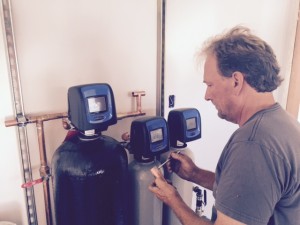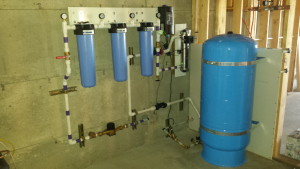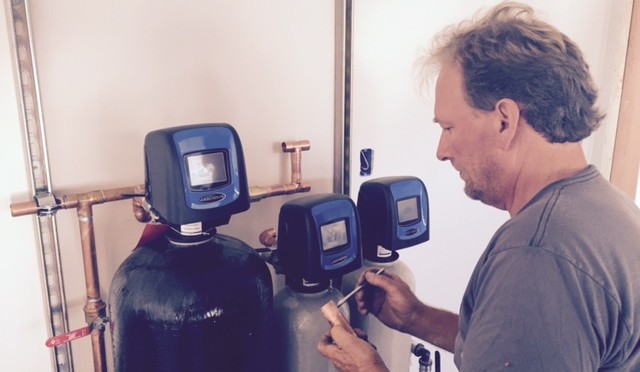 RainBank Rainwater Systems designs and installs custom treatment systems to meet customers’ specific needs.
RainBank Rainwater Systems designs and installs custom treatment systems to meet customers’ specific needs.
Harmful bacteria, pathogens, and cysts removal is a must in a potable rainwater collection disinfection train. This is typically achieved with a class “A” UV light. Flow rates are calculated to achieve the correct amount of contact time with the UV spectrum for proper disinfection. The correct class of UV for a specific application is required. A class “A” UV must be used for water that is not deemed safe to drink. A class “B” is only used for water that has already been safe to drink.
But there are other considerations for water treatment. The raw water must be relatively free of sediments, turbidity, organics and inorganics before entering the UV chamber. The UV spectrum will not be able to penetrate the water column effectively otherwise. Special consideration of environmental constituents should also be addressed for proper treatment.
Environmental concerns can include location of collection area. Where is the house located? Possible hydrocarbons  from a nearby freeway would be a concern. Pesticide use from farming or city landscaping maintenance should be considered. Roof material and manufacturing process could pose a health threat and should be addressed – all of which can be corrected with proper filtration, whether it is accomplished with canister elements or back flush devices.
from a nearby freeway would be a concern. Pesticide use from farming or city landscaping maintenance should be considered. Roof material and manufacturing process could pose a health threat and should be addressed – all of which can be corrected with proper filtration, whether it is accomplished with canister elements or back flush devices.
Rainwater is typically acidic, approximately 5.5 to 6.0 ph; nominal being 7.0 ph. The lower ph levels, while not considered harmful to humans, can have a negative effect on plumbing and fixtures. A more nominal ph level can be achieved with proper treatment.
Rainwater is relatively clean to begin with; much more than surface water. It is what it comes in contact with that can change its purity. Proper design and installation of a filtration and disinfection only comes from using the “right tools for the job”.

